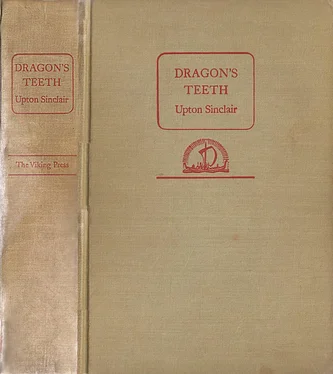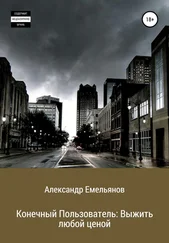Пользователь - o 3b3e7475144cf77c
Здесь есть возможность читать онлайн «Пользователь - o 3b3e7475144cf77c» весь текст электронной книги совершенно бесплатно (целиком полную версию без сокращений). В некоторых случаях можно слушать аудио, скачать через торрент в формате fb2 и присутствует краткое содержание. Жанр: Старинная литература, на русском языке. Описание произведения, (предисловие) а так же отзывы посетителей доступны на портале библиотеки ЛибКат.
- Название:o 3b3e7475144cf77c
- Автор:
- Жанр:
- Год:неизвестен
- ISBN:нет данных
- Рейтинг книги:4 / 5. Голосов: 1
-
Избранное:Добавить в избранное
- Отзывы:
-
Ваша оценка:
- 80
- 1
- 2
- 3
- 4
- 5
o 3b3e7475144cf77c: краткое содержание, описание и аннотация
Предлагаем к чтению аннотацию, описание, краткое содержание или предисловие (зависит от того, что написал сам автор книги «o 3b3e7475144cf77c»). Если вы не нашли необходимую информацию о книге — напишите в комментариях, мы постараемся отыскать её.
o 3b3e7475144cf77c — читать онлайн бесплатно полную книгу (весь текст) целиком
Ниже представлен текст книги, разбитый по страницам. Система сохранения места последней прочитанной страницы, позволяет с удобством читать онлайн бесплатно книгу «o 3b3e7475144cf77c», без необходимости каждый раз заново искать на чём Вы остановились. Поставьте закладку, и сможете в любой момент перейти на страницу, на которой закончили чтение.
Интервал:
Закладка:
the familiar paintings with a new eye. She wondered if it mightn't be better to save them all for
the palace with modern plumbing which she meant some day to have in England or France. To
her husband she remarked: "You see how much better everything goes when you settle down
and stop talking like a Red!"
IX
The Detaze show coincided in time with one of the strangest public spectacles ever staged in
history. The Nazis had laid the attempt to burn the Reichstag upon the Communists, while the
enemies of Nazism were charging that the fire had been a plot of the Hitlerites to enable them
to seize power. The controversy was brought to a head by the publication in London of the
Brown Book of the Hitler Terror, which charged that the Nazi Chief of Police of Breslau, one
of the worst of their terrorists, had led a group of S.A. men through the tunnel from Göring's
residence into the Reichstag building; they had scattered loads of incendiary materials all over
the place, while another group had brought a half-witted Dutch tramp into the building by a
window and put him to work starting fires with a domestic gas-lighter. This was what the whole
world was coming to believe, and the Nazis couldn't very well dodge the issue. For six or seven
months they had been preparing evidence, and in September they began a great public trial. They
charged the Dutchman with the crime, and three Bulgarian Communists and a German with
being his accessories. The issue thus became a three-months' propaganda battle, not merely in
Germany but wherever news was read and public questions discussed. Ten thousand pages of
testimony were taken, and seven thousand electrical transcriptions made of portions of the
testimony for broadcasting.
The trial body was the Fourth Criminal Senate of the German Supreme Court in Leipzig;
oddly enough, the same tribunal before which, three years previously, Adolf Hitler had
proclaimed that "heads will roll in the sand." Now he was going to make good his threat.
Unfortunately he had neglected to "co-ordinate" all five of the court judges; perhaps he didn't
dare, because of world opinion. There was some conformity to established legal procedure, and
the result was such a fiasco that the Nazis learned a lesson, and never again would political
suspects have a chance to appear in public and cross-question their accusers.
In October and November the court came to Berlin, and it was a free show for persons who
had leisure; particularly for those who in their secret hearts were pleased to see the Nazis
humiliated. The five defendants had been kept in chains for seven months and wore chains in the
courtroom during the entire trial. The tragedy of the show was provided by the Dutchman, van
der Lubbe, half-blind as well as half-witted; mucus drooled from his mouth and nose, he giggled
and grinned, made vague answers, sat in a stupor when let alone. The melodrama was supplied by
the Bulgarian Dimitroff, who "stole the show"; a scholar as well as a man of the world, witty,
alert, and with the courage of a lion, he turned the trial into anti-Nazi propaganda; defying his
persecutors, mocking them, driving them into frenzies of rage. Three times they put him out
of the room, but they had to bring him back, and again there was sarcasm, defiance, and
exposition of revolutionary aims.
It soon became clear that neither Dimitroff nor the other defendants had ever known van der
Lubbe or had anything to do with the Reichstag fire. The mistake had arisen because there was a
parliamentary archivist in the Reichstag building who happened to resemble the half-witted
Dutchman, and it was with him that the Communist Torgler had been seen in conversation. The
proceedings gradually turned into a trial of the Brown Book, with the unseen British
committee as prosecutors and the Nazis as defendants.
Goebbels appeared and denounced the volume, and Dimitroff mocked him and made him
into a spectacle. Then came the corpulent head of the Prussian state; it was a serious matter
for him, because the incendiaries had operated from his residence and it was difficult indeed to
imagine that he hadn't known what was going on. Under the Bulgarian's stinging accusations
Göring lost his temper completely and had to be saved by the presiding judge, who ordered
Dimitroff dragged out, while Göring screamed after him: "I am not afraid of you, you
scoundrel. I am not here to be questioned by you . . . You crook, you belong to the gallows!
You'll be sorry yet, if I catch you when you come out of prison!" Not very dignified conduct
for a Minister-Präsident of Prussia and Reichsminister of all Germany!
X
During these entertaining events two communications came to Lanny Budd at his hotel. The
first was painful indeed; a cablegram from his father, saying that the newly elected directors of
Budd Gunmakers had met, and that both Robbie and his brother had been cheated of their
hopes. Seeing the younger on the verge of victory, Lawford had gone over to a Wall Street
group which had unexpectedly appeared on the scene, backed by the insurance company which
held the Budd bonds. The thing which Grandfather Samuel had dreaded and warned against all
his life—Budd's had been taken out of the hands of the family!
"Oh, Lanny, how terrible!" exclaimed Irma. "We should have been there to attend to it."
"I doubt if we could have done anything," he replied. "If Robbie had thought so, he would
surely have cabled us."
"What Uncle Lawford did was an act of treason to the family!"
"He is that kind of man; one of those dark souls who commit crimes. I have often had the
thought that he might shoot Robbie rather than let him get the prize which both have been
craving all their lives."
"What does he get out of the present arrangement?"
"The satisfaction of keeping Robbie out; and, of course, the Wall Street crowd may have paid
him. Anyhow, Robbie has his contract, so they can't fire him."
"I bought all that stock for nothing!" exclaimed the young wife.
"Not for nothing, but for a high price, I fear. You had best cable Uncle Joseph to look into the
matter thoroughly and advise you whether to sell it or hold on. Robbie, no doubt, will be
writing us the details."
The other communication was very different; a letter addressed to Lanny in his own
handwriting, and his heart gave a thump when he saw it, for he had given that envelope to
Hugo Behr. It was postmarked Munich and Lanny tore it open quickly, and saw that Hugo had
cut six letters out of a newspaper and pasted them onto a sheet of paper—a method of
avoiding identification well known to kidnapers and other conspirators. "Jawohl" can be one
word or two. With space after the first two letters, as Hugo had pasted them, it told Lanny that
Freddi Robin was in Dachau and that he was well.
So the American playboy forgot about his father's lost hopes and his own lost heritage. A
heavy load was lifted from his mind, and he sent two cablegrams, one to Mrs. Dingle in Juan—
the arrangement being that the Robins were to open such messages—and the other to Robbie
in Newcastle: "Clarinet music excellent," that being the code. To the latter message the dutiful
son added: "Sincere sympathy don't take it too hard we still love you." Robbie would take this
with a grin.
Irma and Lanny tore Hugo's message into small pieces and sent it on its way to the
capacious sewers of Berlin. They still had hope of some favor to be gained from the head of the
Читать дальшеИнтервал:
Закладка:
Похожие книги на «o 3b3e7475144cf77c»
Представляем Вашему вниманию похожие книги на «o 3b3e7475144cf77c» списком для выбора. Мы отобрали схожую по названию и смыслу литературу в надежде предоставить читателям больше вариантов отыскать новые, интересные, ещё непрочитанные произведения.
Обсуждение, отзывы о книге «o 3b3e7475144cf77c» и просто собственные мнения читателей. Оставьте ваши комментарии, напишите, что Вы думаете о произведении, его смысле или главных героях. Укажите что конкретно понравилось, а что нет, и почему Вы так считаете.




